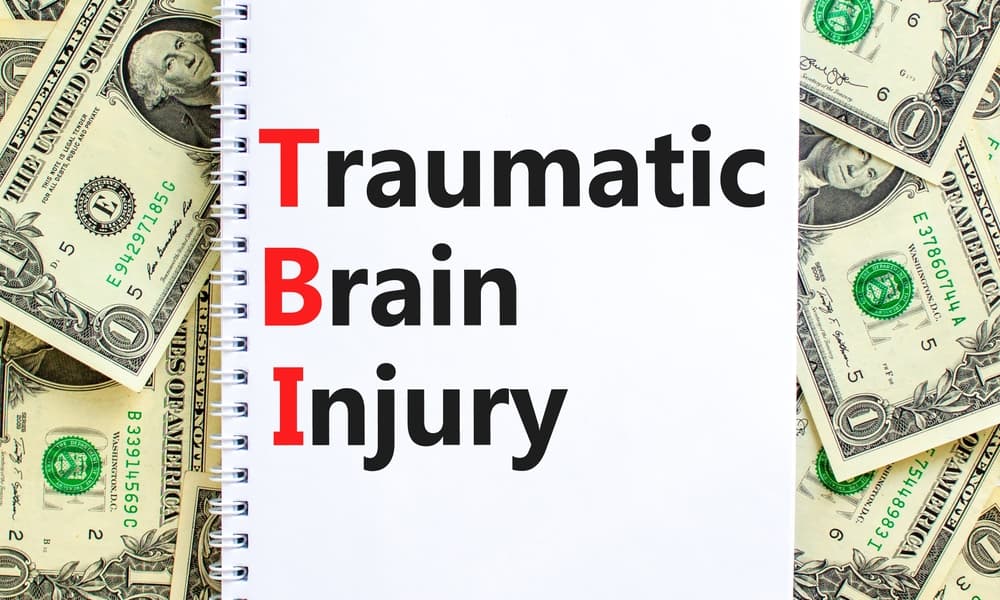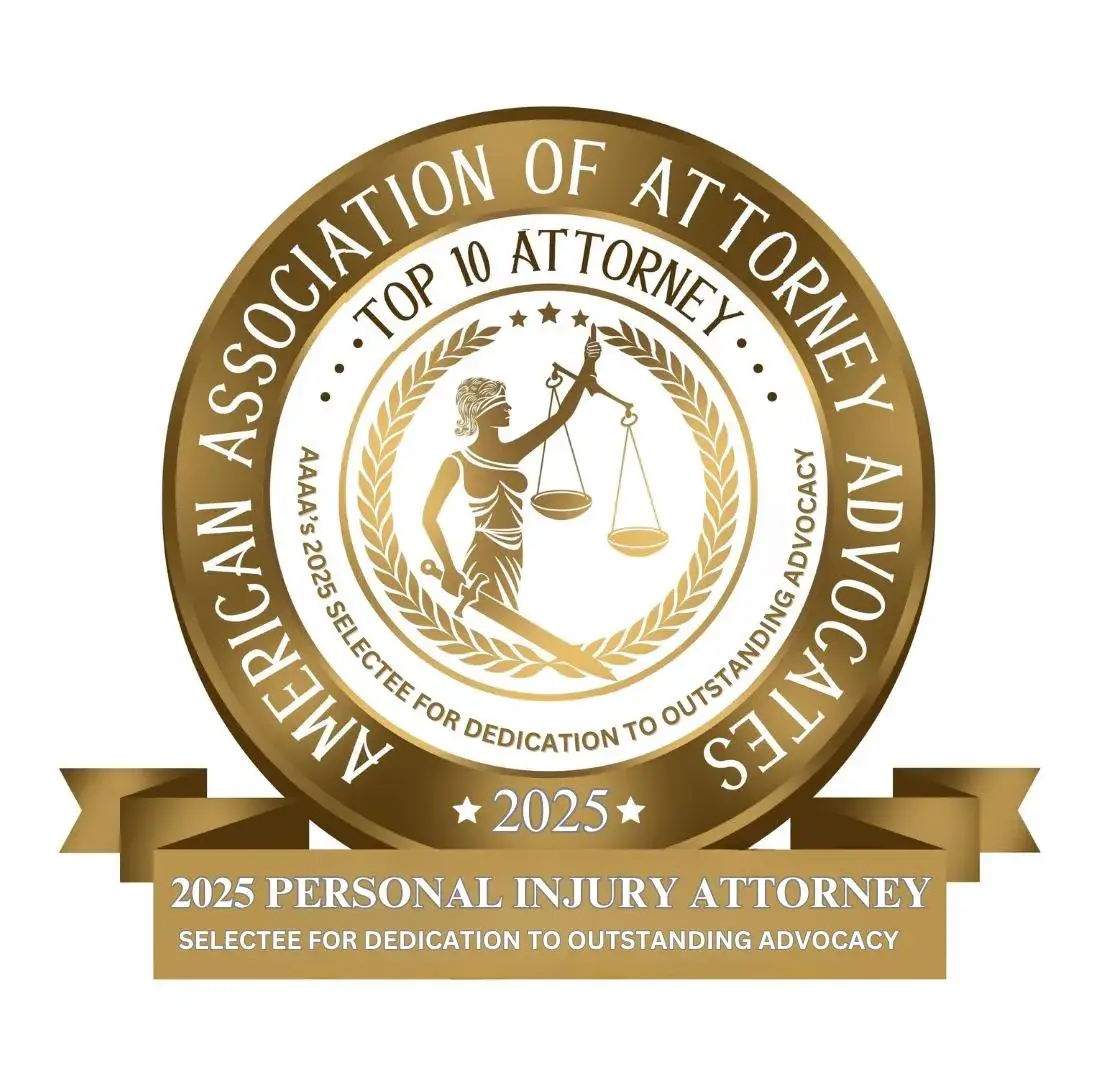
When Should You Hire a Personal Injury Lawyer in Bergen County? A Guide for After Your Accident
You should consider hiring a personal injury lawyer in Bergen County if your injury requires medical treatment beyond a simple check-up, causes you to miss work, or results in a diagnosis with long-term consequences. The moment an insurance adjuster contacts you, or when you begin to feel pressured by mounting medical bills and lost income, is a clear signal that you need legal guidance.
The days and weeks after an accident are filled with uncertainty. You are likely dealing with physical pain, but the financial and emotional stress is just as difficult. Questions about how you will pay for treatment, make up for lost wages, and deal with insurance companies are common.
Managing New Jersey’s insurance laws, which have recently changed, and staying on top of deadlines is tough. This is not a burden you should have to carry while you are focused on healing.
Our team at Maggiano, DiGirolamo & Lizzi, P.C. is here to lift that weight from your shoulders. Call us at (201) 585-9111 to discuss your situation.
Table of contents
- Key Moments That Signal It’s Time to Call a Lawyer
- The Financial Pressure Cooker: Bills, Lost Wages, and NJ Insurance Law
- How Is Pain and Suffering Calculated (And Why This Is Exactly Where You Need a Lawyer)
- “Is My Case Too Small for a Lawyer?” Here’s the Truth
- FAQ: Your Questions About Personal Injury Claims in Bergen County
- Let Our Firm Handle the Details, So You Can Focus on Healing
Key Moments That Signal It’s Time to Call a Lawyer
The Injury’s Impact Goes Beyond the Initial Pain
The seriousness of an injury is determined by how it changes your life. The initial shock may give way to a slow realization that the effects of the accident are lingering, impacting your ability to work, care for your family, and live as you did before.
Consider these signs:
- Ongoing Medical Care: Your treatment involves more than a single visit to an emergency room. It could include surgery, physical therapy, pain management injections, or appointments with specialists. Each medical appointment is another reminder of the accident, and each bill is a source of new stress.
- A Doctor’s Long-Term Outlook: Your doctor has told you that the injury may result in permanent limitations, chronic pain, or require future medical procedures. This forecast of future care is a component of a personal injury claim that is commonly overlooked in quick insurance settlements.
- Lost Time and Income: You have missed days, weeks, or even months of work. The paychecks have stopped, but the bills have not. This lost income is a direct financial loss caused by the accident, and it can create immense pressure on you and your family.
- A Change in Your Daily Life: The injury prevents you from doing things you once did, whether it’s working, caring for your family, or enjoying your hobbies. Pain that flares up on a cold morning or an inability to perform simple tasks rewrites every aspect of your life.
New Jersey’s Legal Deadline
In New Jersey, there is a time limit for filing a personal injury claim, known as the Statute of Limitations. For most cases, you have two years from the date of the accident to file a lawsuit, as outlined in N.J.S.A. § 2A:14-2.
Think of this not as a distant deadline, but as a window of opportunity that is steadily closing. While two years may seem like a long time, the work of building a strong case begins immediately.
Why acting sooner is better:
- Evidence Fades: Witness memories become less clear over time. Physical evidence like skid marks or property damage is quickly cleaned up or repaired. Securing this evidence as soon as possible is a foundational step in proving what happened.
- The “Discovery Rule”: In some cases, an injury isn’t immediately obvious. New Jersey’s “discovery rule” may start the two-year clock from the date you discovered, or reasonably should have discovered, the injury. This might not be a straightforward determination, and waiting too long could jeopardize your claim.
- Building a Strong Case: A thorough investigation takes time. Our firm needs to gather police reports, interview witnesses, consult with medical professionals, and collect all the necessary documentation to build a comprehensive case on your behalf. Starting this process early allows us to be meticulous and prepared.
The First Phone Call: When the Insurance Adjuster Reaches Out
It will likely happen soon after the accident: a phone call from the other party’s insurance adjuster. They may sound friendly and helpful, expressing concern for your well-being.
It is important to understand their role. Their job is to protect the financial interests of their company by resolving your claim for the lowest possible amount. They are trained negotiators, and their goals are not aligned with yours.
A Key Piece of Advice: Avoid giving a recorded statement without speaking to an attorney first.
- Your words are easily taken out of context. A simple “I’m feeling okay” could be used later to argue your injuries aren’t serious, even if you are just trying to be polite.
- You may not yet know the full extent of your injuries. New pain can flare up days or weeks later. Settling a claim before you understand the full scope of your medical needs is a risk you should not have to take.
This is one of the first and most significant responsibilities we take off your plate. We handle all communications with insurance companies, ensuring your rights are protected from the very beginning. This allows you to focus on your health without the pressure of dealing with adjusters.
The Financial Pressure Cooker: Bills, Lost Wages, and NJ Insurance Law
How a Bergen County Lawyer Helps You Stay Afloat
Whether you live in a community like Fort Lee, where the cost of living is high, or other towns like Hackensack or Teaneck, financial stability is paramount. An unexpected injury frequently causes you to watch your savings wither away as medical bills arrive in the mail.
Recent changes to New Jersey law have increased the minimum required auto insurance coverage. These changes, which began taking effect in 2023, mean there may be more insurance money available to cover your medical bills and lost wages than in the past. However, accessing these funds requires a precise understanding of the new policy limits and how they apply to your specific situation. Our firm stays current on these legislative changes to ensure we pursue the maximum compensation available under the law.
Many people hesitate to call a lawyer because they worry about the cost. Our firm handles personal injury cases on a contingency fee basis. In simple terms, this means we only receive a fee if we successfully recover money for you. There are no upfront charges or out-of-pocket expenses for our services. We invest our resources in your case, and our payment is contingent on a successful outcome for you.
What If I Was Partially at Fault? Understanding Comparative Negligence
New Jersey follows a legal rule called modified comparative negligence, as defined by N.J.S.A. 2A:15-5.1.
Think of it like this:
- A court determines the total amount of damages and assigns a percentage of fault to each person involved.
- If you are found to be 20% at fault for the accident, your final compensation award would be reduced by 20%.
- However, if you are found to be 51% or more at fault, you are barred from recovering any compensation at all.
Insurance companies may try to shift as much blame as possible onto you to reduce or deny your claim. An investigation by our team might uncover facts—like a driver’s history of speeding or a property owner’s failure to maintain a safe environment—that changes this percentage significantly. We work to ensure that the allocation of fault is based on a complete and accurate account of the incident.
How Is Pain and Suffering Calculated (And Why This Is Exactly Where You Need a Lawyer)
You won’t find pain and suffering listed on a medical bill or pay stub. And yet, it’s typically the largest part of your compensation. It includes the sleepless nights, the panic in traffic after your crash, the frustration of not being able to pick up your child or walk without pain.
Insurance companies use shortcuts to calculate this.
The “Multiplier Method”
They take your medical bills and lost wages and multiply that number by 1.5 to 5. The problem? If you had a serious injury but limited treatment (due to cost, access, or personal obligations), your pain still matters. But the formula won’t reflect that.
The “Per Diem Method”
They assign a dollar amount per day until you’ve reached maximum medical improvement. But healing from a herniated disc or post-concussion syndrome isn’t linear. You may look fine after a month, yet still suffer every day.
These formulas aren’t designed to reflect your real experience. They’re tools used to protect the insurer’s bottom line. This is where a lawyer changes everything.
A personal injury attorney:
- Translates your daily pain into documented evidence
- Works with doctors and therapists to provide long-term projections
- Shows how your injury affects your relationships, work, and routine
- Pushes back on adjusters who try to dismiss real suffering with a spreadsheet
Pain and suffering is where real cases—ones that actually account for your entire scope of damages—are made or lost.
“Is My Case Too Small for a Lawyer?” Here’s the Truth
Many people hesitate to call a lawyer because they’re not sure their case is “serious enough.” Maybe you didn’t break a bone. Maybe the ER visit was short. Maybe the adjuster seemed nice and offered you $2,000 to settle things quickly.
Don’t fall for that.
Here’s what people don’t realize:
- That $2,000 check closes your case permanently, even if your symptoms worsen tomorrow.
- We’ve seen time and time again how a “minor” soft tissue injury becomes chronic, affecting your ability to work, lift, or sleep.
- Insurance companies don’t make generous early offers. That’s not how they afford to give their executives millions in bonuses. If they’re offering money, it’s likely worth more.
You don’t need to have surgery or miss six months of work to benefit from legal help. You just need to know that someone is fighting to make sure you’re not shortchanged.
We handle cases on a contingency fee basis, meaning:
- You pay nothing upfront.
- We only get paid if we recover money for you.
- If the case turns out to be smaller than expected, we still do the work—and you still have an advocate.
No case is too small to deserve fairness. And no injury is too minor to ask: “Is this really all I’m owed?”
Call us. We’ll give you an honest answer, and if it’s not a case, we’ll still explain your options clearly. No fees or obligations whatsoever.
FAQ: Your Questions About Personal Injury Claims in Bergen County
Do I have to go to court if I hire a lawyer?
It is unlikely. The vast majority of personal injury cases, around 95%, are resolved through a negotiated settlement before ever reaching a trial. Our goal is to prepare a case so thoroughly that the other side is compelled to offer a fair settlement. We build a comprehensive claim, grounded in evidence, that demonstrates the full extent of your losses, motivating the insurance company to resolve the matter without the need for a lengthy court battle.
My family is from Korea and our English isn't perfect. Can you still represent us?
Absolutely. We believe communication should never be a barrier to justice. Our firm has the resources to ensure we fully understand your story and that you understand every step of the legal process. We serve clients from all backgrounds in Fort Lee, Palisades Park, and throughout Bergen County, home to a vibrant and growing Korean community.
I'm from the Orthodox Jewish community in Teaneck and have concerns about scheduling around Shabbat and holidays. How do you handle that?
We deeply respect the religious observances and cultural needs of all our clients. We understand the importance of Shabbat and holidays in the Orthodox Jewish community in Teaneck. We will work closely with you to schedule meetings, depositions, and any other legal matters in a way that honors your faith and traditions. Your peace of mind is important to us, and we will always accommodate your religious commitments.
What does it mean to prove negligence?
Negligence is a legal concept that simply means someone failed to act with reasonable care, and that failure caused your injury. For example, a driver who runs a red light or a store owner who doesn’t clean up a spill has likely acted negligently. Our job is to gather the evidence—such as traffic camera footage, witness statements, or maintenance logs—to prove that this failure of care occurred and directly led to your injuries.
What kind of compensation, or "damages," can I receive?
Damages are meant to compensate you for your losses. This can include:
-
- Economic damages: These are the tangible financial losses you have incurred. This includes medical bills (past and future), lost wages, and damage to your property.
-
- Non-economic damages: This is compensation for the non-financial impact of the injury, such as pain and suffering, emotional distress, and the loss of enjoyment of life. These damages acknowledge the human cost of an accident, which often extends far beyond the financial.
Let Our Firm Handle the Details, So You Can Focus on Healing
The path forward after an injury should be focused on one thing: your recovery. You do not have to figure out the legal system on your own. Let our experience be your guide and our calm competence be your reassurance.
The team at Maggiano, DiGirolamo & Lizzi, P.C. will handle the insurance companies, the legal deadlines, and the complex details of your case. Your job is to get better. We are committed to serving all members of our diverse Bergen County communities, from the melting pot of Hackensack to the growing Korean population in Fort Lee and the established Jewish communities in Teaneck.
Take the first step toward putting this behind you. Call us today for a free consultation at (201) 585-9111.



















